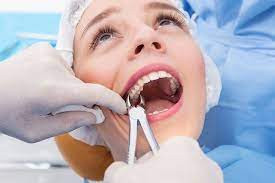views
Tooth Removal Treatment
If you’re curious about what are the most common reasons for tooth removal, you’re not alone. Tooth extraction is a common dental procedure performed for various health and practical reasons. While dentists strive to preserve natural teeth whenever possible, sometimes removal is necessary to protect overall oral health. Understanding the common causes for Tooth Removal helps patients prepare and make informed decisions about their dental care.
Tooth Decay and Severe Cavities:
One of the leading reasons for tooth removal is extensive tooth decay. When a cavity progresses too far and damages the tooth beyond repair, extraction may be the best option.
Key points about decay-related extractions:
-
Deep cavities can cause infection reaching the pulp (nerve) of the tooth
-
If root canal treatment is not possible or successful, extraction is recommended
-
Severe decay weakens the tooth structure, increasing fracture risk
Removing a severely decayed tooth prevents the spread of infection to surrounding teeth and gums.

Gum Disease and Periodontal Problems:
Advanced gum disease (periodontitis) is another common reason for tooth removal. This condition damages the supporting tissues and bone around teeth, leading to loosening and eventual loss.
Reasons for extraction due to gum disease include:
-
Severe bone loss that destabilizes the tooth
-
Persistent infection unresponsive to treatment
-
Deep periodontal pockets causing chronic inflammation
-
Mobility making the tooth non-functional or painful
Extracting these teeth can improve overall gum health and prevent further oral damage.
Impacted or Problematic Wisdom Teeth:
Wisdom teeth often need removal because they can cause pain, crowding, or infection when they fail to erupt properly.
Common issues with wisdom teeth include:
-
Impaction where teeth are trapped under the gums or bone
-
Crowding of adjacent teeth leading to misalignment
-
Infection or cyst formation around partially erupted teeth
-
Difficulty cleaning causing decay or gum disease
Dentists frequently recommend wisdom tooth removal to prevent future complications.
Trauma and Injury to Teeth:
Accidents and injuries that cause severe tooth damage sometimes require extraction.
Important considerations for trauma-related removal:
-
Fractures extending below the gum line or splitting the tooth
-
Teeth loosened or knocked out beyond repair
-
Infection following trauma when saving the tooth isn’t feasible
-
Damage to supporting bone structures necessitating removal
Timely extraction helps avoid infection and facilitates oral rehabilitation.
Orthodontic and Space Management Reasons:
Sometimes Tooth Removal Treatment as part of orthodontic treatment to create space and allow proper alignment.
Orthodontic reasons for extraction include:
-
Crowded teeth that cannot be corrected without removal
-
Improving bite alignment and jaw function
-
Removing extra or supernumerary teeth that interfere with treatment
-
Preparation for dental prosthetics like implants or bridges
Extractions in these cases are planned carefully to support long-term dental health.
Other Medical or Dental Conditions:
Certain systemic or dental conditions also call for tooth removal, such as:
-
Failed root canal treatments causing chronic infection
-
Tumors or cysts in the jaw requiring tooth removal for access
-
Severe decay or infection in immunocompromised patients
-
Preparation for dentures or other prosthetic devices
Each case is evaluated individually to balance risks and benefits.



Comments
0 comment